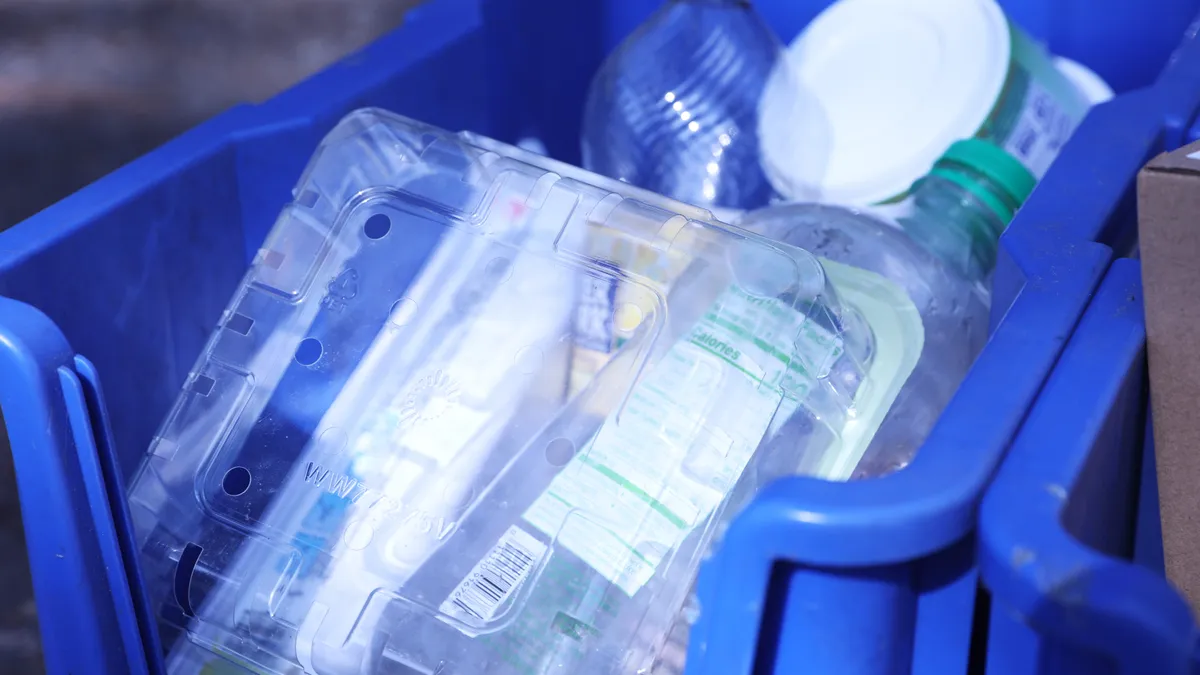UPDATE: May 12, 2021: Earlier this week, Georgia Gov. Brian Kemp signed a law to ensure proceeds for specific trust funds are used for their intended purposes. The legislation follows voter approval of a constitutional amendment in November. The Georgia Beverage Association, a supporter of making this move in order to boost recycling funds, said this means the state's Solid Waste Trust Fund will now be fully funded for the upcoming fiscal year.
Dive Brief:
- November 2020: Georgia voters recently approved a constitutional amendment directing the state legislature to dedicate tax or fee revenue levied for a specific purpose to only be spent on those given purposes. This could have notable implications by redirecting more funding to hazardous waste clean up, landfill management and recycling and waste reduction programs.
- Since 2009, only $56 million of the $154 million collected for the state's Hazardous Waste Trust Fund has been used for intended purposes. Meanwhile, the Solid Waste Trust Fund collected $73 million and saw $22 million go to intended uses. This is according to Georgia Recycling Economic Development Partners, which backed the amendment.
- Some area recycling professionals believe the newly bolstered funding could help prioritize more than $1 million per year for a range of recycling initiatives in a state that was limited by budget cuts years ago. This could include research, a new staff position, educational resources and local program grants.
Dive Insight:
This is welcome news for regional recycling professionals at a time when funding has been limited, but it still doesn't mean funding collected will automatically and perpetually be spent only on intended activities. The amendment still requires the state legislature to pass another bill confirming each trust fund will continue. Once passed, the fund (and fees levied to fill it) will expire after 10 years.
Georgia Beverage Association President Kevin Perry, whose organization supported the amendment, said he’s confident those bills will pass. But it could take a couple fiscal years until all trust fund revenues are locked into guaranteed spending plans.
The governor can also suspend these plans if the broader state budget is at least 3% less than anticipated in the most recent fiscal year, or if the state has three consecutive months of declining revenues. In July, Georgia ended the fiscal year $1 billion dollars short of revenue goals and advocates expect they will still need to push for funds to go to intended uses.
“I think that because of the pandemic, it's going to be a challenge in fiscal year 2021,” Perry said.
Regional groups also view the amendment as a success, but expect more work to come.
"It’s a shame we have to have amendments to the constitution for the legislature to follow through on all their own acts,” said Will Sagar, executive director of the Southeast Recycling Development Council.
Over the years, Georgia has diverted most of the solid waste and hazardous waste trust fund revenues to the general fund. North Carolina and other states also have a habit of dipping into money designated for recycling and waste management programs, Sagar said.
“My greatest hope in the passing of this amendment is that other states will take the same action," said Sagar.
This hope might not be a long shot based on the desire in multiple states to find more revenue for waste and recycling programs. Michigan, for example, just wrapped up its second fiscal year doling out funding for a range of waste-related activities including landfill oversight and remediation practices, plus recycling education, infrastructure and market development. The Renew Michigan Fund, which sets aside $69 million annually, was created with an influx of new online sales tax revenue in 2019.
This potential for new investment in Georgia could help reverse more than a decade of underfunding. The Georgia Department of Community Affairs, which handles solid waste and recycling, cut staffing 10 years ago and eliminated the requirement that local governments file annual solid waste reports.
“Removing metrics and reporting activity makes it extremely hard for anybody to manage progress," said Sagar.
Even if the funds are recommitted, the new sources of revenue are not expected to fully address Georgia's infrastructure needs in part because they too have been affected. Last year, the $0.75 per ton supplemental tip fee at landfills went down to $0.51, and the $1 fee per tire sold in the state has fluctuated in the past.
It’s possible that initial investments would also make local programs better candidates for a range of outside grant programs, Sagar said. National entities including Keurig Dr. Pepper, The Recycling Partnership and the Coca-Cola Foundation have put funding towards local recycling efforts throughout the state in recent years, according to Georgia Recycling Economic Development Partners.
“There's a lot of private industry investment, and it would be great if the state had a little bit of skin in the game,” Perry said. Most money spent in recent years from the solid waste fund went toward scrap tire clean up, he added.
Pending the legislature's approval, cash from the two Georgia waste funds can get funneled into a long list of approved activities. Recycling advocates hope, however, that recycling receives its fair share. In their view, an ideal list could include funding to commission a recoverable materials characterization study and hire a technical assistance manager to help towns execute their plans.
They would also like to see money spent on training sessions to help reduce contamination, along with a statewide education campaign. The largest request is for grant funding to help local governments, starting at $500,000 in the first fiscal year and growing to $1 million in following years. Sagar also hopes the newly-dedicated funding could revive abandoned plans for a network to connect rural areas to MRFs, as some towns are a long way from facilities.










